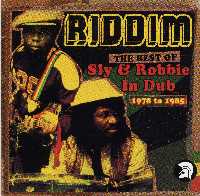Most music business experts will tell you that a good song is the foundation for the commercial success of a recording. The business of music publishing, which deals with the management and exploitation of the copyrights in songs, is also one of the most lucrative aspects of the business of music. Good songs will always be covered by other artistes, resulting in additional income for the songwriters. In my opinion there are three key ingredients to a good song from a commercial standpoint.
These are: 1) a good groove for dancing or listening which is set in the musical composition, or rhythm as we call it; b) a catchy melody from the vocal performance on the recording; and c) lyrics with a wide audience appeal.
 The Jamaican artistes and music producers who have consistently tried to merge the above three ingredients in their recordings are the ones who have made it to the top of the international music charts, and the ones who have had music careers spanning decades. As music composers and producers, I think Sly and Robbie stand head and shoulders above all in terms of their understanding and incorporation of these three key songwriting ingredients in their recordings. As a lyricist, Bob Marley reigns supreme in his ability to merge nice grooves and catchy melodies with his universally appealing lyrics.
The Jamaican artistes and music producers who have consistently tried to merge the above three ingredients in their recordings are the ones who have made it to the top of the international music charts, and the ones who have had music careers spanning decades. As music composers and producers, I think Sly and Robbie stand head and shoulders above all in terms of their understanding and incorporation of these three key songwriting ingredients in their recordings. As a lyricist, Bob Marley reigns supreme in his ability to merge nice grooves and catchy melodies with his universally appealing lyrics.
Not every singer or DJ is a good songwriter, and neither is every songwriter a good singer or DJ. In the scheme of things today in the Jamaican music production business, where hundreds of recordings are being done by hundreds of singers and DJs, and there is an apparent mad rush to get on the hottest new rhythm or musical groove, very little effort is being put into constructing catchy melodies and/or lyrics that make sense, let alone have wide-scale global appeal. There is no questioning, however, the potency and creativity behind the many great reggae and dancehall grooves being composed by our very talented musicians and producers. They sure have the whole world dancing. Unfortunately, the lyrical competence of several of our singers and DJs who pose as songwriters leaves much to be desired.
Music production is in many ways a lot like farming. You produce food for the mind in music and food for the body in farming. In farming you have cash crops which come and go quickly, and you have those crops which take very long periods of time to bear fruit. Similarly in Jamaican music, there are recordings which last a couple of weeks and those which last a lifetime. Good songs take time to produce, last much longer, provide better nourishment for the mind, and yield more to the producer, performer and writer.

Sean Paul in concert
I recall reading an interview with Sean Paul where he explained that he took a very conscious decision in the production of his music to focus on lyrics that were not only delivered with catchy melodies, but that were also understood by a wider international audience. Not all singers and DJs have the ability to do this, and where they fall short the music producers responsible for making their recordings should let them know that they need the support of a good lyrics writer.
The business of recording is a team effort which requires the input of a variety of talent not always found in one and the same person. Not every singer or DJ is capable of coming up with sensible lyrics on the spot to fit the latest hot rhythm on the producer’s mixing board. No wonder we are being bombarded with the sameness of the frivolous cash crop lyrics in a lot of our current dancehall recordings. Many very good musical compositions/rhythms are being wasted with substandard lyrics. More attention to the key ingredients of songwriting will take reggae and dancehall even further, and ensure more commercially viable and longer-lasting music careers for more performers, songwriters and music producers.






1 comment
Gordon Anthony Lewis says:
Feb 14, 2019
Hi,I have my own composition entitled”Brother Bob-H.I.M(His Imperial Musician).I already have the arrangements for it.It is an original dedication to Bob Marley.How do I move forward with this.